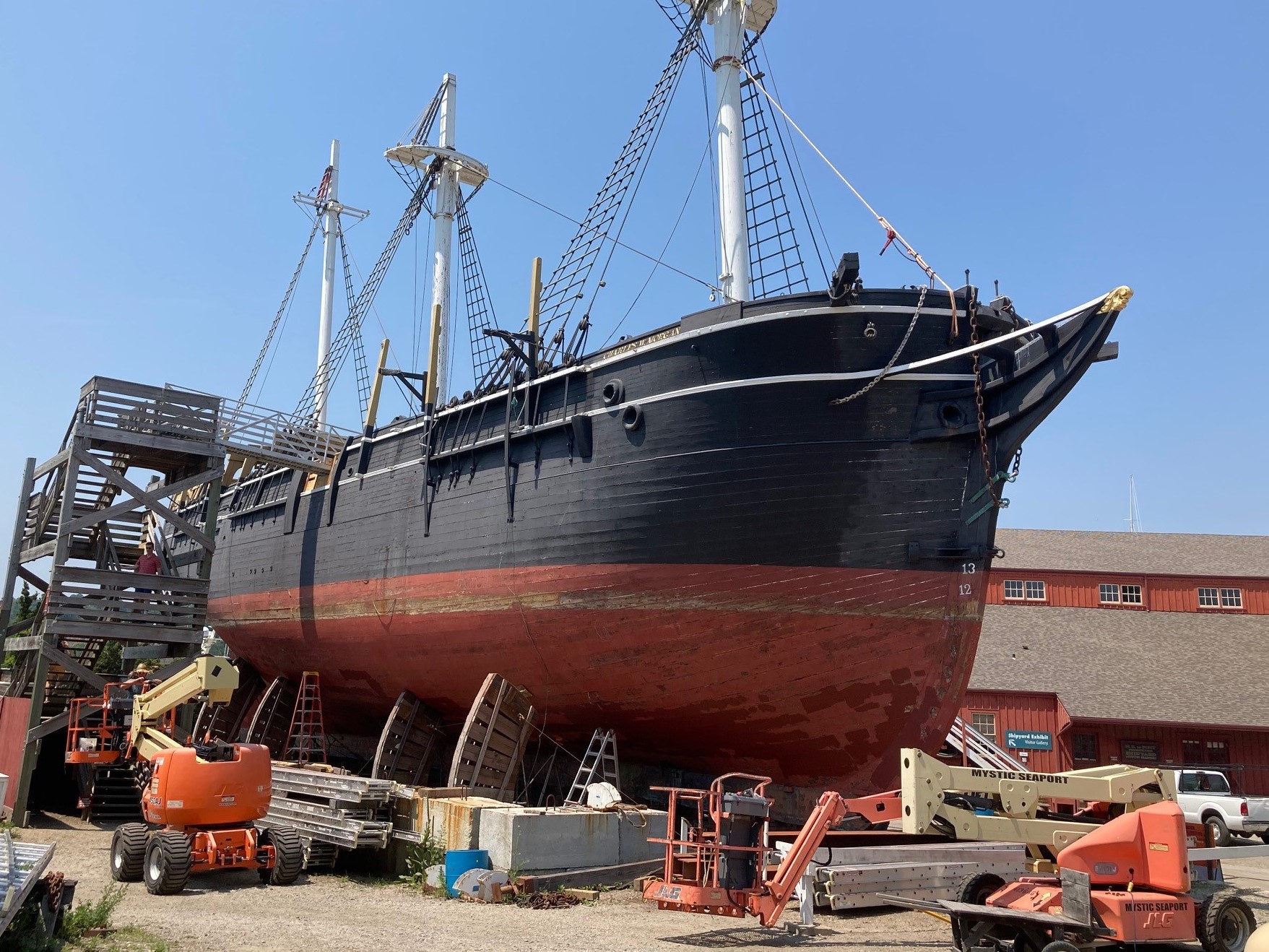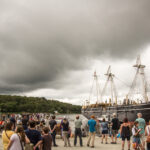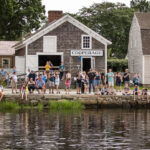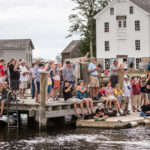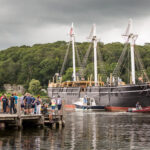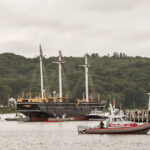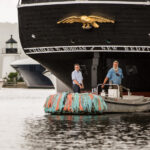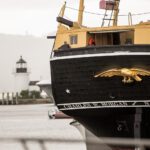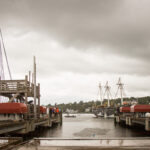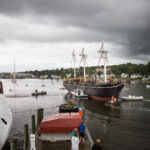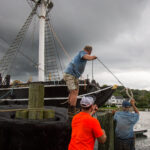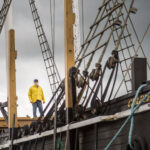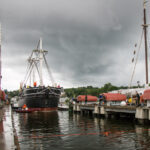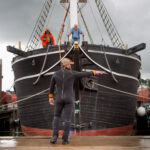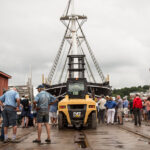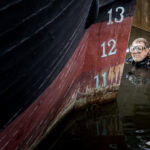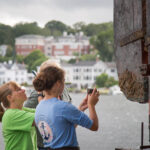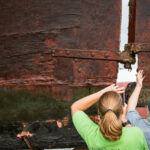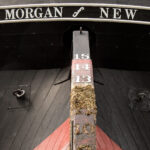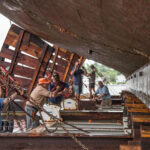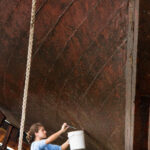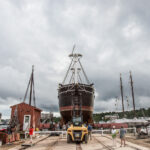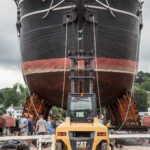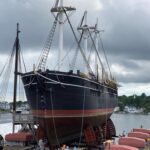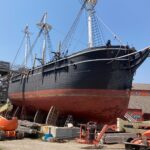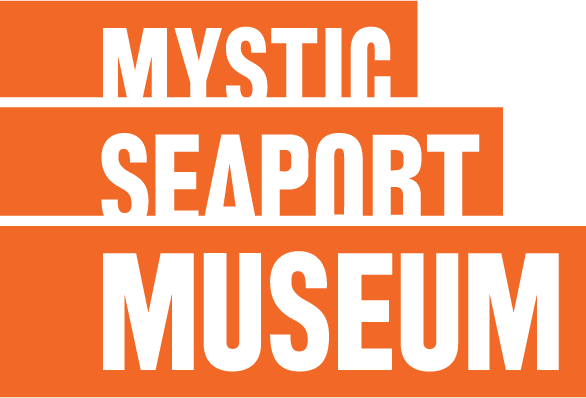Mystic Seaport Museum hauled the 1841 whaleship Charles W. Morgan for routine maintenance and preservation work on Monday, July 19.
The ship was moved from its berth on the Museum’s waterfront to the shipyard at the south end of the property. The public was invited to watch as the ship is pushed and towed down the river beginning around 3:30 p.m.
Once at the shipyard, staff hauled the Morgan out of the water on the yard’s synchronized shiplift and then moved it onto dry land so the Museum’s shipwrights could access the hull for work. Once pulled into the work area, the hull was power washed and inspected. Of note was a significant level of corrosion of the copper sheathing that protects the keel.
The Museum hauls the ship approximately every 3 years for inspection, maintenance such as painting and caulking, and repairs as needed. The ship should be out of the water for about a month and will remain open to the public to go on board during much of that time.
“This is a rare opportunity to see an historic vessel such as the Charles W. Morgan high and dry, where one can walk right up and see the shape and details of the hull, which is normally invisible under the water,” said Peter Armstrong, the president of Mystic Seaport Museum.
About the Charles W. Morgan
The Morgan is the last of an American whaling fleet that numbered more than 2,700 vessels. Built and launched in 1841, it is America’s oldest commercial ship still afloat.
The 107-foot long whaleship typically sailed with a crew of about 35, representing sailors from around the world. Over an 80-year whaling career, the Morgan embarked on 37 voyages with most lasting three years or more. Built for durability and not speed, it roamed every corner of the globe.
The Morgan was designated a National Historic Landmark in 1966 and it is also a recipient of the coveted World Ship Trust Award. Since its arrival at Mystic Seaport Museum in 1941, more than 20 million visitors have walked its decks. While built to hunt and process whales for profit, its purpose now is to tell an important part of America’s maritime heritage for current generations.

